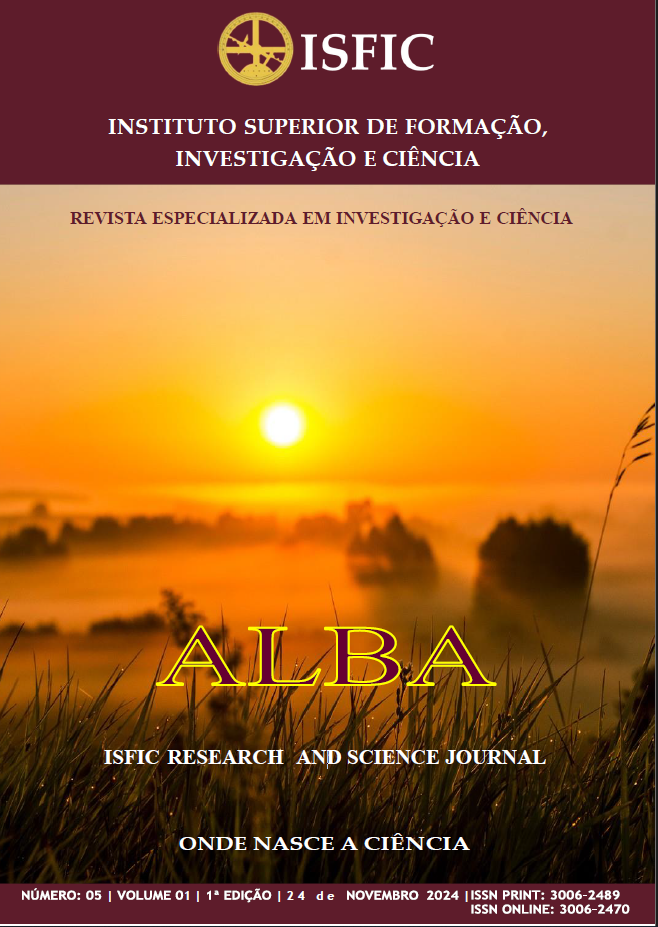Taxation lessons: meaning and perspectives in higher education, given the Mozambican tax system
Abstract
This article seeks to point out the elements that limit a more in-depth teaching of taxation subjects, therefore, to reflect on the way in which taxation learning is achieved, in the Mozambican context. The discipline is dedicated to the study of taxes that apply in a given territorial space as well as the set of laws and administrative regulations that make up the tax system. In Mozambique, this subject is essentially taught in higher education institutions with the aim of educating students on the state's financial activity, its importance among economic operators and the State, as well as on declaratory obligations related to the system's main taxes. tax. The results reveal that the workload is small for the proposed study plan, essentially for the Mozambican tax system, as it is extensive and quite complex, meaning that even with a lot of effort, it is not an easy task for curriculum planners and teachers, dealing with the teaching and learning process of this subject. All of this leads us to the conclusion that, if good pedagogical planning is not improved, it can result in ineffective training, with significant impacts on a personal, professional, business and State level, as the trainees do not master the taxes, economic agents will not have better declarations of their income and taxes to pay, and the State will not collect taxes at the appropriate level to meet the needs of the community.
Downloads
References
Angotti, J. A. P. (1999). Ensino de ciências e complexidade. Anais do II ABRAPEC-Associação Brasileira dos Pesquisadores do Ensino de Ciências, Águas de Lindóia, SP.
Braga, J. L. (2005). Para começar um projeto de pesquisa. Comunicação & Educação, 10(3), 288-296.
Catarino, J. R. e Guimarães, V. B (2013). Lições de fiscalidade. Em O Sistema Tributário Português, Volume I, 2ª Edição. J. R. Catarino /V. B. Guimarães: (Coords). Editor Edições Almeida, S.A. Coimbra, Portugal.
Duarte, M. (2014). Carga horária vs carga de trabalho: mudanças introduzidas pelo Processo de Bolonha. Anais do 6º Encontro Internacional da Sociedade Brasileira de Educação Comparada.
Ibraimo, I. (2002). O direito e a fiscalidade. Um contributo para o direito fiscal moçambicano. Maputo, Moçambique: INLD.
Júnior, J. C. (2010). Processo de Ensino-Aprendizagem na Era da Consciência, Revista da Educação, 13, n° 16, 105-117.
Laita, M. (2014). Implicações do processo de Bolonha na Organização dos Planos Curriculares e nas Práticas Pedagógicas na Universidade Católica de Moçambique. Tese de Doutoramento. Universidade Católica Portuguesa, Faculdade de Educação e Psicologia, Porto, Portugal.
Pereira, M. H. F (2018). Fiscalidade. (6ª. ed.). Coimbra, Portugal: Edições Almeida;
Santos, A. C. (2013). A Fiscalidade como fenómeno social Total em Fiscalidade e outros olhares. A. C. dos Santos & C. M. da M. Lopes (Coords). Fiscalidade e outros olhares. Porto, Portugal: Vida Económica Editorial, SA, pp. 15-46;
Tavares, A. (1982). Curso de Fiscalidade da Empresa: Regime Fiscal e Parafiscal da Empresa. (2ª. ed.). Lisboa – Portugal: Editora Clássica.
Pereira, M. H. F. (2023). Fiscalidade, 7ª Edição, Ed. Almedina, S.A. Portugal;
Legislação
Lei n° 15/2002, de 26 de Junho – Lei de Bases do Sistema Tributário moçambicano;
Lei n° 2/2006, de 22 de Março, Lei do Ordenamento Jurídico Tributário moçambicano.
Lei n° 1/2018 de 12 de Junho – Constituição da Republica de Moçambique;
Lei 1/2023, de 17 de março – lei do ensino superior.







